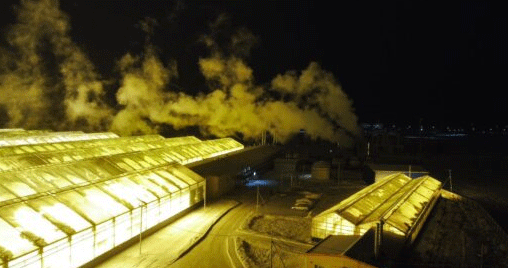In the remote and harsh climate of Yakutia, the Sayuri agrocomplex is breaking new ground with its innovative approach to greenhouse farming. With the launch of a new gas piston power station (GPPU) in Yakutsk, the complex is set to further revolutionize vegetable production in the Russian Far East. The facility, which grows vegetables and greens year-round in one of the coldest regions on earth, aims to meet up to 25% of the region’s demand for fresh produce.
The 2 MW gas-powered station, funded with over 100 million rubles from the federal budget, will provide stable and cost-effective electricity to the greenhouse complex, significantly reducing energy costs, which have traditionally been a major financial burden. This is especially critical in the extreme cold of the Far North, where energy consumption spikes in winter months.
According to Sergey Mestnikov, Deputy Chairman of the Government of the Sakha Republic (Yakutia), the greenhouse project, originally launched as an experimental initiative by the republic’s head, Aisen Sergeevich Nikolaev, has now become an essential part of the local food system. “Thanks to federal support, the complex continues to grow, ensuring fresh vegetables on the tables of Yakutians year-round,” Mestnikov noted. He also expressed optimism for the future, emphasizing that the project’s expansion will not only enhance product variety but also increase accessibility to quality food in the region.
The Sayuri complex covers 3.3 hectares of greenhouses and produces around 2,400 tons of cucumbers, tomatoes, and greens annually. Valery Garipov, the project leader at Zvezda Arktiki, the managing organization behind Sayuri, explained that the addition of the new gas-powered station will bring the complex’s total generation capacity to 6 MW. This will ensure uninterrupted operation and further lower operational risks and energy costs. The complex has already received significant government support in the form of tax breaks, administrative preferences, and land allocations, with Sayuri investing around 1.9 billion rubles into the project and creating 113 local jobs.
The Sayuri agrocomplex is part of the “Yakutia” advanced development zone (TOR), which offers favorable conditions for investors, including land lease agreements and infrastructure support such as water and electricity connections. Dmitry Borisov, director of the Development Corporation of the Far East and Arctic (KRDV) in Yakutia, highlighted the corporation’s role in providing consultative, legal, and informational assistance to ensure the project’s success.
Sayuri’s new power station marks a significant milestone for agriculture in one of the coldest regions of Russia. By leveraging innovative energy solutions, the agrocomplex is reducing costs, ensuring the stability of its operations, and helping to meet the region’s growing demand for fresh vegetables. This successful public-private partnership not only supports food security in Yakutia but also paves the way for further agricultural development in the Arctic and Far East regions of Russia.










